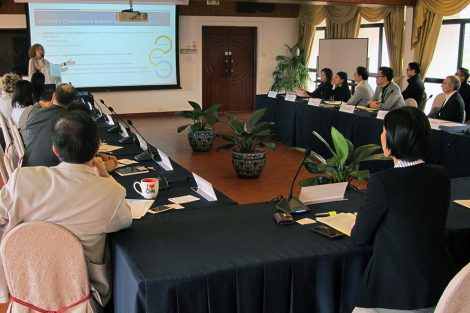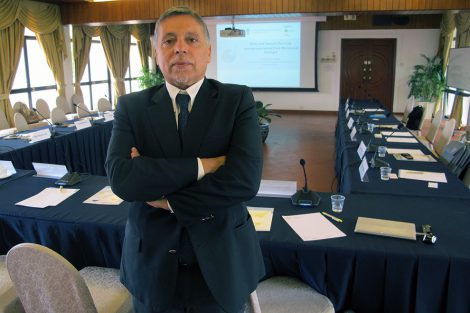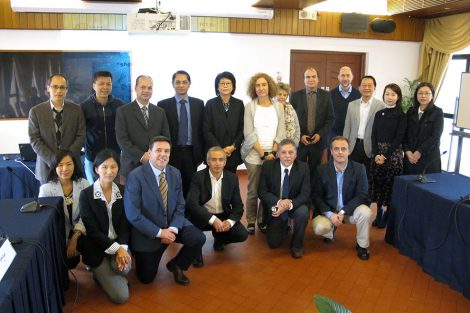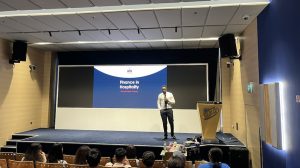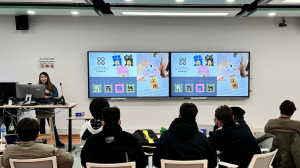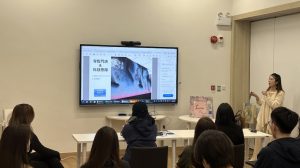IFT and Universidade de Lisboa’s Territur research group hosted on 24 November a seminar on ethics and tourism planning. The event took place at Pousada de Mong-Há, at IFT’s Mong-Há Campus.
The seminar was attended by more than 20 scholars from, respectively, IFT, Territur, and Portugal’s Estoril Higher Institute for Tourism and Hotel Studies. Territur is a research group on tourism, culture and planning and is part of the Centre of Geographical Studies at Universidade de Lisboa. The latter is also known as the University of Lisbon.
The seminar covered topics including responsible tourism, ethics and social responsibility in tourism, and accessible and inclusive tourism.
The Portuguese scholars attending the seminar were in Macao to participate in the National Congress of the Portuguese Association of Travel and Tourism Agencies, which took place at the Macau Tower Convention and Entertainment Centre from 23 to 27 November.
“Macao is becoming a leader in tourism in this part of the world,” says Portuguese scholar Dr. José Manuel Simões. “Since we were coming to Macao, IFT was a partner we wanted to exchange experiences with.”
Dr. Simões heads Territur. He was part of a team that between 1993 and 1994 drafted a blueprint to build a satellite city in Macao’s Cotai district. The area at the time was undeveloped. The plan – commissioned by the former Portuguese administration – was never implemented.
Dr. Simões says Portuguese cultural influences are a distinctive aspect of Macao, contributing to the competitiveness of the city’s tourism industry. “Tourism needs to promote the authenticity of places,” he states. “We need to innovate in tourism – and tourists want that – but by ensuring quality and preserving identity.”
Dr. Maria do Céu Almeida, from Estoril Higher Institute for Tourism and Hotel Studies, was one of the scholars delivering a presentation at the seminar. Hers focused on risk and resilience in tourism.
Dr. Almeida says that often tourism developments are located in areas exposed to, or likely to be exposed to, sudden-onset natural disasters. That makes effective risk prevention and management very important.
“We can do a lot to prevent risks associated with natural disasters,” she says. Effective communication channels are important, in order to ensure everyone – including tourists that do not understand the local language – are aware of existing risks and can follow emergency guidelines, Dr. Almeida further notes.
As part of the seminar, IFT Visiting Professor Dr. John Ap delivered a presentation on sustainable tourism planning. He says the event as a whole helped participants get a variety of perspectives on tourism planning. “Ethics and social responsibility in tourism are critical issues when it comes to sustainability,” he states.
Other IFT scholars delivering presentations at the seminar included Dr. Sandeep Basnyat, who talked about ethics and social responsibilities in tourism; and Dr. Sharif Shams Imon, whose presentation was about the United Nations’ sustainable development goals and social responsibilities in tourism.



